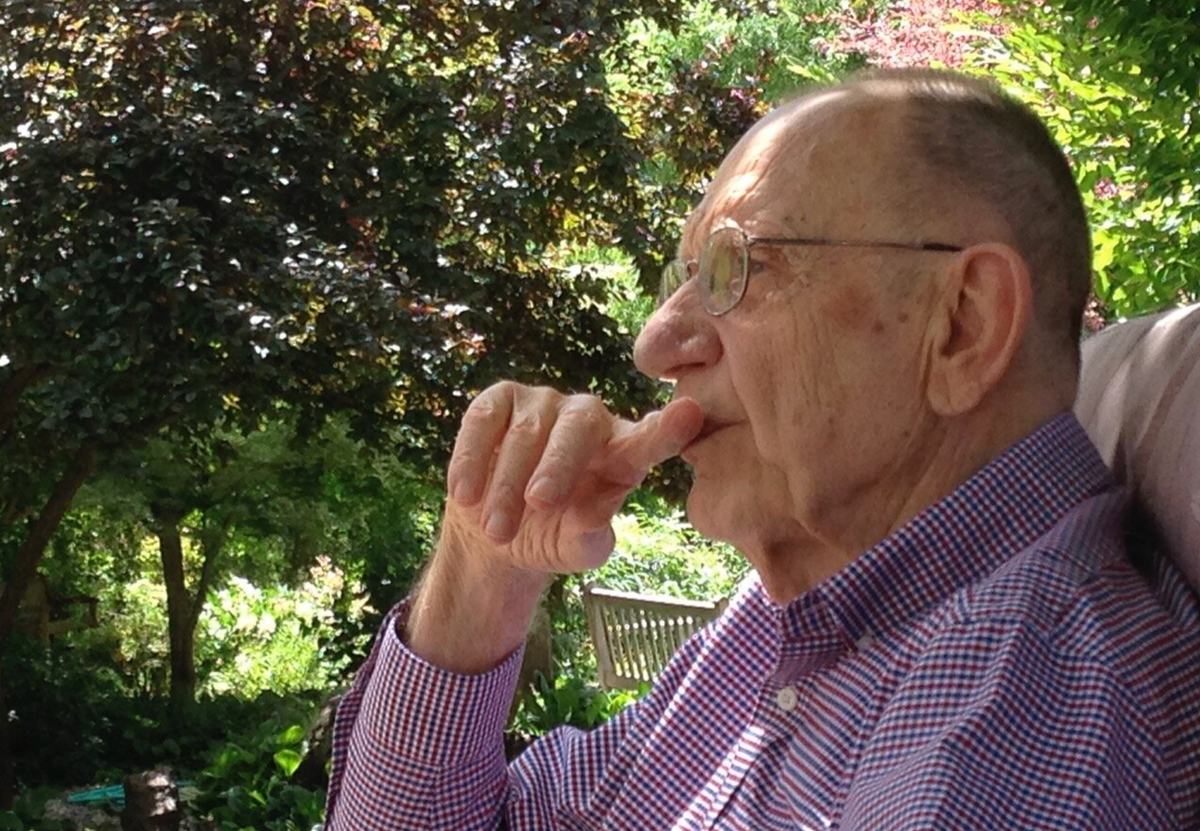Song of songs
Reflections on a recent visit with my grandfather

It has been a week.
Wednesday morning, my grandfather was quite lucid. As we listened to some classical music, watching the cherry trees outside his window, sharing stories and catching up in an easy flow, he would occasionally raise his hand, indicating we should listen to a passage, during which he would call out the timbre of a particular instrument or the swell of a particular line. It was my childhood again: Saturdays, cooking, when his knife would stop chopping to let Fauré ascend; Tuesday gatherings, his handful of peanuts paused as Bartok barreled through. As much as my grandmother taught me to see, my grandfather taught me to hear. And so we listened, together, and I was carried past his occasional stumbles outside reality.
Thursday was different. He was sitting amid a group of women when I visited him, concluding a mid-afternoon snack, and he was ever the gracious host once he saw me, introducing me, name by name, around the table. But the afternoon thereafter was by turns quiet, confusing, stilted, grasping. A name lost, a place misplaced. The dining room’s radio played music, but Wednesday’s cellos were now a tacky Western called “A Man and His Banjo,” and my grandfather’s raised hand now brought only half-sentences and half-reality. Some days are better than others, my aunt and uncle had warned me, some hours better than others. And so it is. We found another pole. Warmer than the poles of our planet, especially in his farewell hug, but feeling, at that moment, just as remote.
Yesterday, we sat together in church at a memorial service for my aunt’s mother. His atrophied hands couldn’t hold the program, his occluded eyes couldn’t read the words in the hymnal that I held; the service was, simply and devastatingly, beyond him. But then the organ began the chords for “Amazing Grace,” and I heard a clear and resonant baritone break through beside me. No words came to my grandfather’s lips, but the melody rose as if he were young again. As if he were still conducting choirs, as if my grandmother were still accompanying him. It might have been muscle memory — miraculous enough for a man whose muscles and memory failed him long ago — but it felt more like his soul declaring itself present with what tools it has left.
And so today, as I drive back west to Seattle, music will keep me company: a cherry-tree aubade, a banjo-scored nocturne, a song without words.